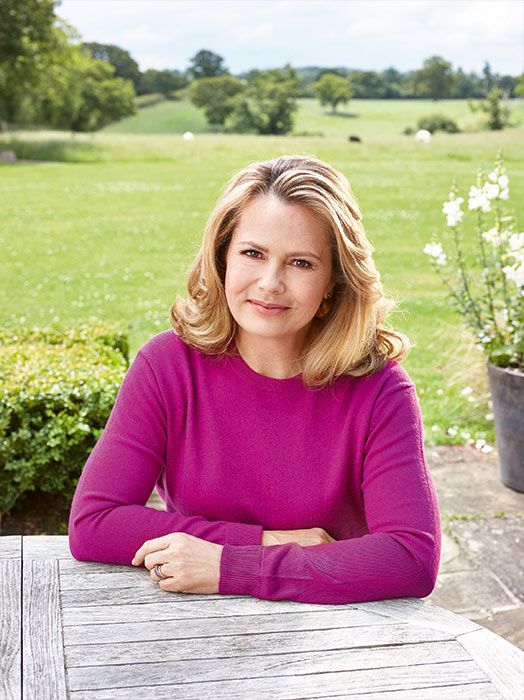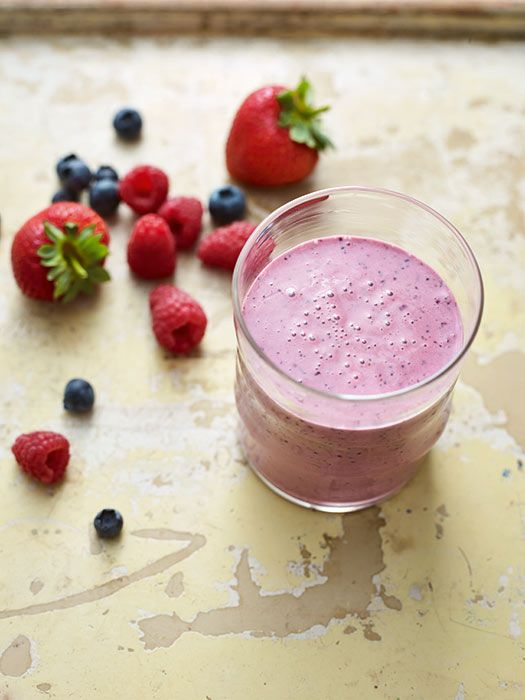The menopause and perimenopause can bring an array of uncomfortable symptoms, such as weight gain and sleep disorders. However, tweaking your diet can have a powerful impact in helping to restore balance. Wellbeing expert and entrepreneur Liz Earle, whose new book The Good Menopause Guide is published on 8 March, has revealed the foods you should eat and avoid to manage symptoms and ensure women look and feel the best they can.
"Food has such tremendous power to help and heal our changing bodies, and what we choose to eat is one of the most important wellbeing factors we can control in life," Liz says. "Eating the right balance of nutritious and healthy foods can make a real difference to how we look and feel – especially during the perimenopause, which is the stage that then leads into the menopause."
Liz Earle reveals the foods to eat and avoid during the menopause
Look for the phyto-oestrogens
My special ingredients for looking and feeling your radiant best during the mid and later life include phyto-oestrogens, which provide oestrogen-like compounds that occur naturally in the plant kingdom. Phyto-oestrogens can help ease many menopausal symptoms, but they're also tasty and nutritious in their own right. Soya milk and soya flour, linseeds, tofu, Japanese tempeh and miso, pumpkin seeds, sesame seeds, sunflower seeds, celery, rhubarb and green beans all contain phytoestrogens. Look for recipes rich in these ingredients, such as one of my favourites, baked sweet potato burgers made with kidney beans and chickpeas.
RECIPE: Liz Earle's super-skin saving smoothie
Avoid sugar
Tempting though it may be to reach for an afternoon biscuit, this will trigger a sharp rise in blood glucose levels followed by a rapid drop. During the perimenopause, fluctuating sugar levels lead the body to convert excess energy into fat, which in the long term will raise the risk of type 2 diabetes and CVD. A better option is to choose nuts, seeds or fresh fruit as snacks to restore flagging energy in a more balanced and sustained way. One of my kitchen cupboard secrets, shared in many of The Good Menopause Guide recipes, is to use cinnamon in recipes to help curb sugar cravings.
The wellbeing expert shared her recipe for a skin saving smoothie
Calcium and Vitamin D
To compensate for bone density loss, which is almost unavoidable as time goes by due to lower levels of oestrogen, it's important to eat foods rich in calcium and vitamin D throughout the perimenopause and menopause. Good sources of vitamin D are oily fish, organic eggs, red meat and foods fortified with vitamin D by the manufacturer, such as some breakfast cereals. Dairy products, kale, spinach, cabbage and sesame seeds are all excellent sources of calcium. Vegetarians (and especially vegans) need to vigilantly monitor their daily nutrition to ensure they don’t become deficient and weaken their bones.
STORY: Pamela Anderson shares her experiences of the menopause
Healthy Fats
I've been an advocate of full-fat, whole and healthy fats for thirty years or more and 'good' fats are especially important during the menopause as we actually make our hormones from cholesterol. Avocados, oily fish such as salmon, mackerel, herring and sardines, nuts (and their respective nut butters) and seeds such as chia and flax seed (linseed) are all good sources of high-quality good fats. I also recommend taking a daily Omega-3 fish oil supplement to help boost brain, body and skin, especially from mid-life onwards.
The Good Menopause Guide is released on 8 March
Finally – a word on hot flushes
When it comes to hot flushes, it's best to avoid eating the foods that can trigger these, such as spicy food, alcohol and coffee – especially during the afternoon if you are prone to night sweats. Rooibos tea and turmeric chai lattes great taste if you can't go without a hot drink - and they're caffeine free!
The Good Menopause Guide by Liz Earle is published by Orion Spring in hardback on 8 March, £25.

